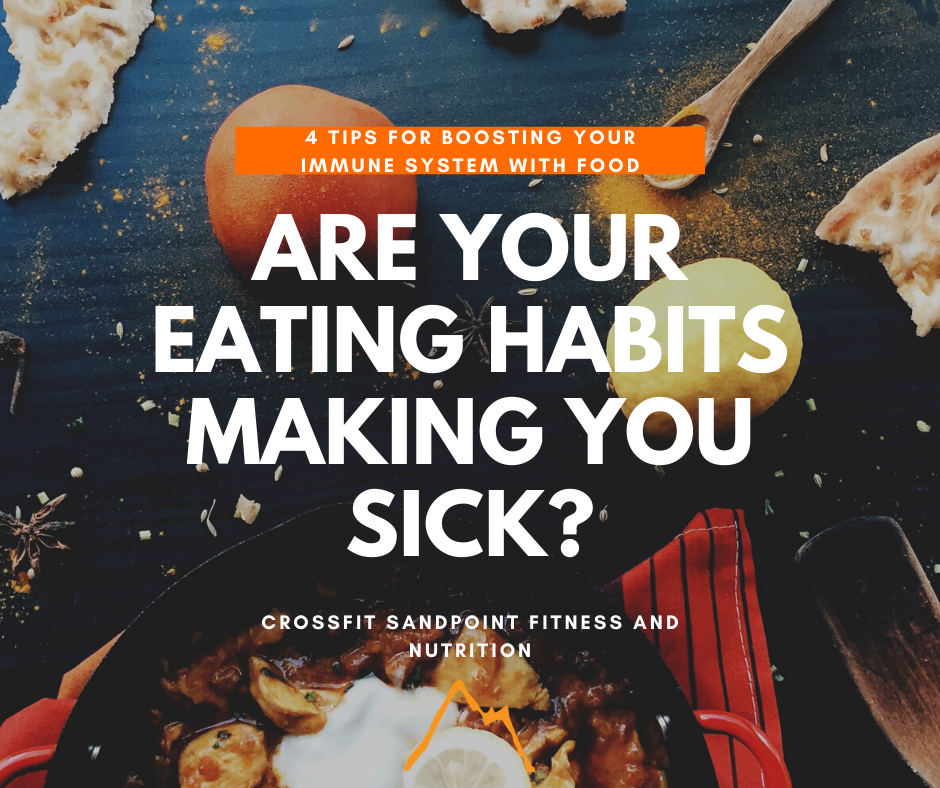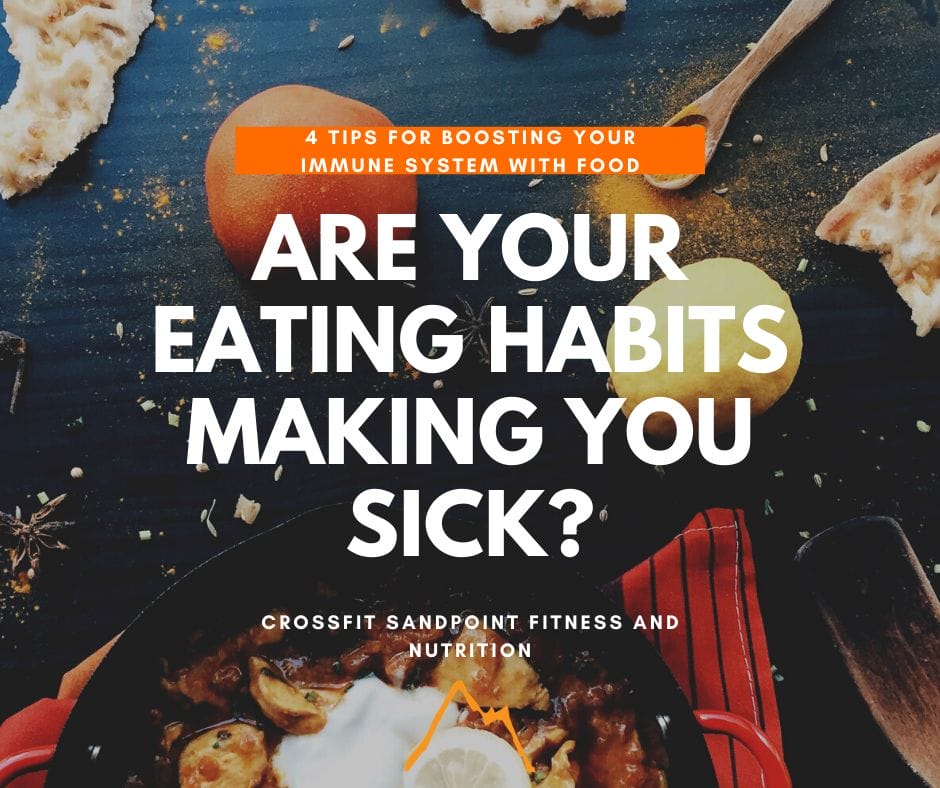
Most people don’t think about how the food they are eating is affecting their immune system. While we’re currently focusing on things we can do externally (washing our hands like crazy, avoiding social contact and remembering to use our sneeze pockets) a balanced diet can absolutely help protect our bodies from the inside.
With most of us having more time on our hands, now is a great time to start thinking about nutrition. Here are our top 4 tips for creating a strong immune system!
-
Include veggies with every meal! From Vitamin A to D, vegetables contain nutrients that boost our immune systems naturally. We recommend filling half your plate in veggies. Sounds like a lot? Start with a handful and boost your intake slowly. If you’re wondering what vegetables are ideal, start by focusing on making your plate as colorful as possible. Vegetables of different colors contain different nutrients, so aiming for a vibrant plate is a good way to ensure you’re getting variation.
-
Include fruit once a day. Fruit, like vegetables, plays a valuable role in our immune system. But, unlike vegetables, the sugars in fruit can add up. So, we recommend having one serving of fruit a day and focusing on those high in Vitamin C (think citrus fruits). Here’s a list of some of our favorites.
-
Cantaloupe.
-
Citrus fruits and juices, such as orange and grapefruit.
-
Kiwi fruit.
-
Mango.
-
Papaya.
-
Pineapple.
-
Strawberries, raspberries, blueberries, and cranberries.
-
Watermelon.
-
-
Lean Proteins with every meal: Since your immune system is made up of proteins and relies on new protein synthesis to function, it’s no surprise that getting too little protein in your diet can weaken your immune system. No one food will magically fend off illness, but certain nutrients take the lead in helping protect your body from billions of bacteria, viruses, and other germs—and protein is one of them. … Another reason: Many foods high in protein also contain other immune-boosting nutrients. So if you take one thing away from this post, EAT YOUR PROTEIN! If you’ve ever heard us talk about nutrition you know that we take our protein consumption very seriously. How much should you have??
Well a good rule of thumb is starting with one palm-sized serving for women and two palm-sized servings for men.
-
Get your Zzzzs – Lack of sleep can absolutely impact your immune system. Although not directly related to food, sleep deprivation can both impair your immune system and result in a decreased ability to fight a virus once you have it. Most adults need a solid 7-8 hours sleep to function. If you’re having trouble sleeping here are a few tricks to try.
-
Make your room as dark as possible. We’re talking black out curtains and a sleeping mask, especially as we get into the lighter months.
-
Stay off your screens. The blue light from your phone or TV can absolutely impair your sleep. Try setting an alarm to put your phone down 1 hour before your bedtime. We also suggest moving your phone away from your nightstand to help retrain yourself. Reading, yoga, and meditation are great pre-sleep activities that help your brain wind-down naturally.
-
Add a magnesium supplement to your routine (consult your doctor first). We love Natural Calm before bed. This natural muscle relaxer will help you doze off easily and stay asleep. Most people are deficient in magnesium so supplementing is a good idea.
-
While we can’t guarantee that all these things will leave you virus free, taking steps to feel in control, in an out of control situation will leave you feeling calmer and healthier.

